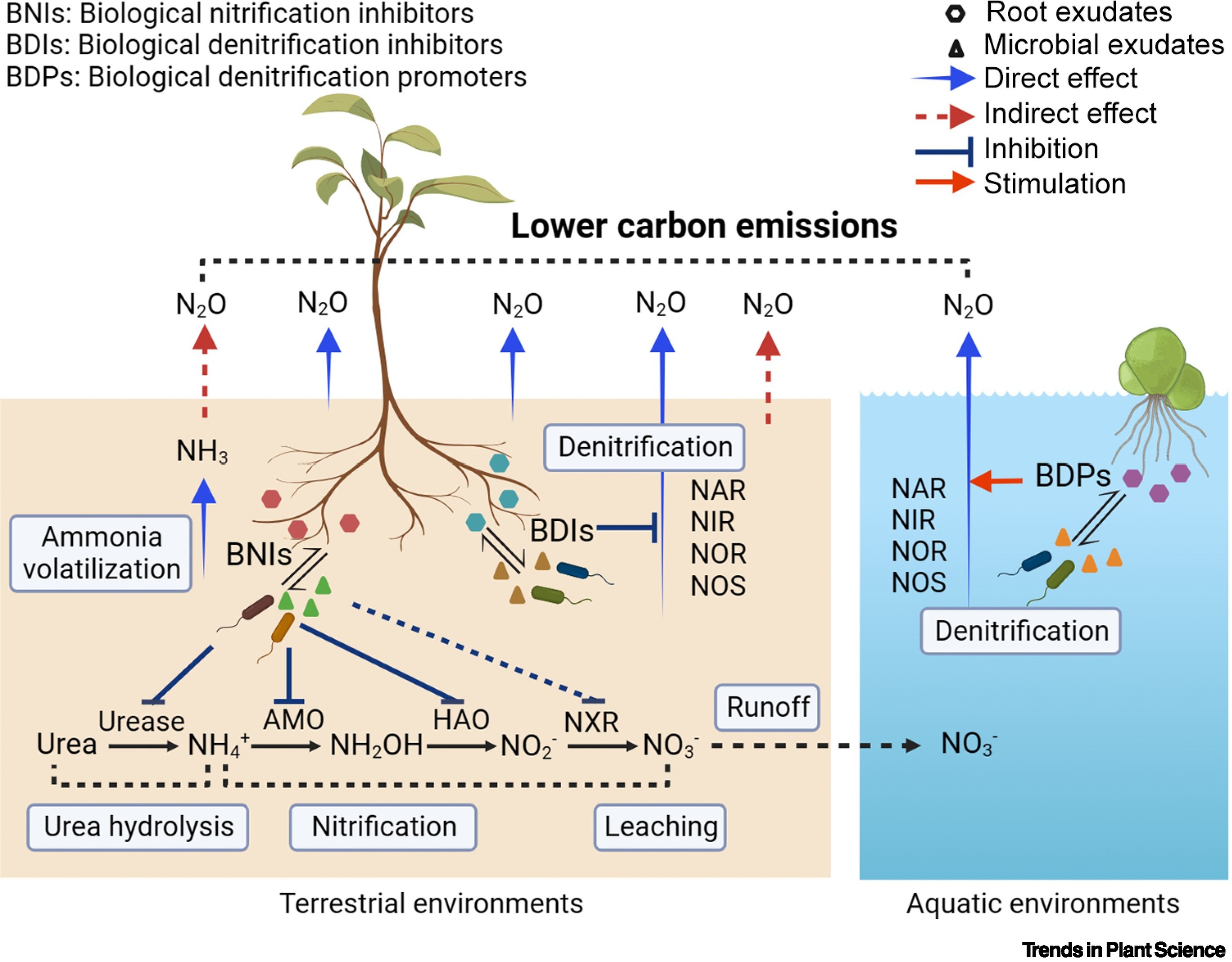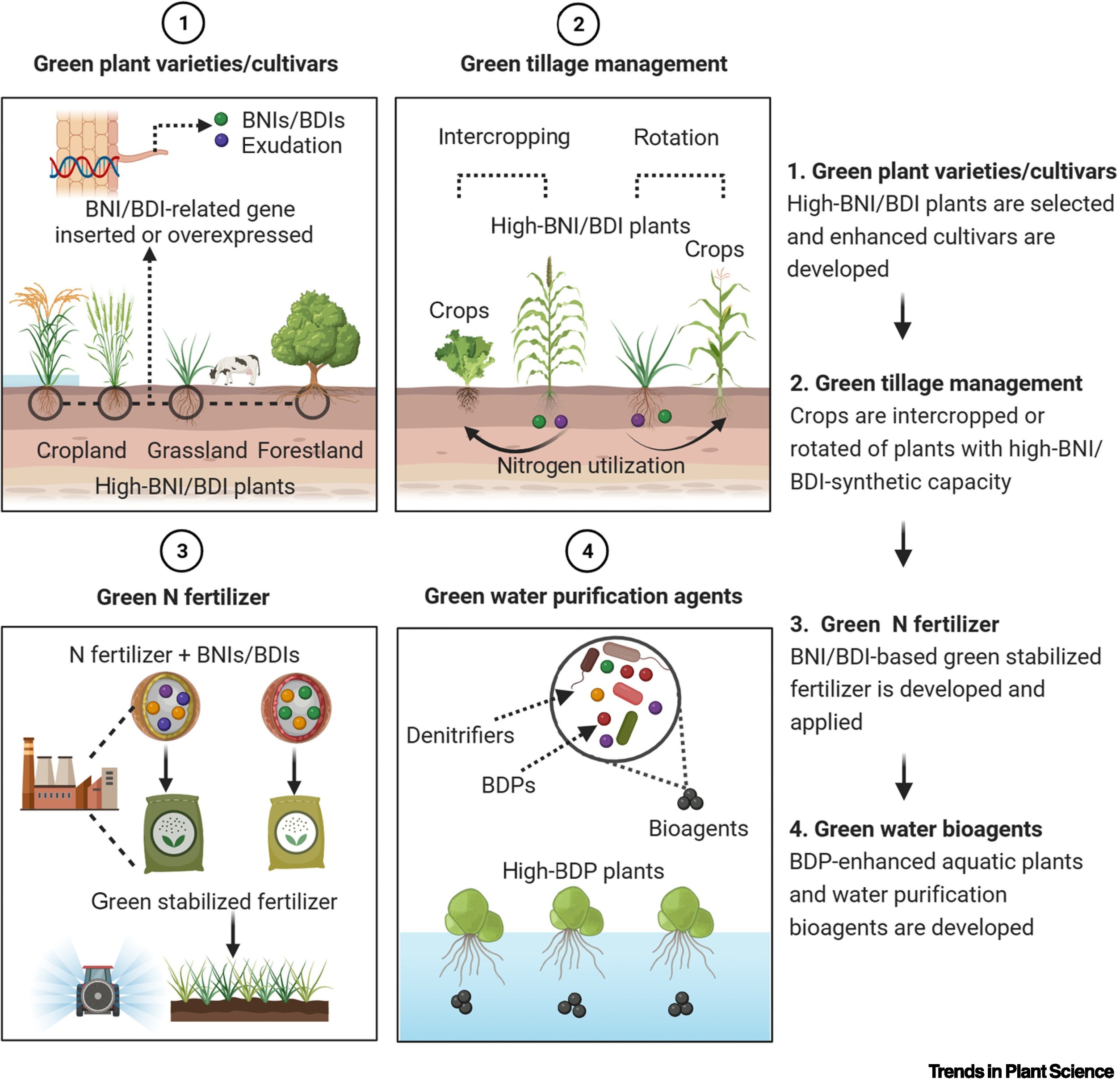Nitrogen-loss and carbon-footprint reduction by plant-rhizosphere exudates
Low-carbon approaches to agriculture constitute a pivotal measure to address the challenge of global climate change. In agroecosystems, rhizosphere exudates are significantly involved in regulating the nitrogen (N) cycle and facilitating belowground chemical communication between plants and soil microbes to reduce direct and indirect emissions of greenhouse gases (GHGs) and control N runoff from cultivated sites into natural water bodies. Here, Prof. SHI Weiming and his team with Peking University, University of Melbourne and other research units discuss specific rhizosphere exudates from plants and microorganisms and the mechanisms by which they reduce N loss and subsequent N pollution in terrestrial and aquatic environments, including biological nitrification inhibitors (BNIs), biological denitrification inhibitors (BDIs), and biological denitrification promoters (BDPs). They also highlight promising application scenarios and challenges in relation to rhizosphere exudates in terrestrial and aquatic environments.Fig1. A conceptual figure of nitrogen (N) emission mitigation by small-molecule rhizosphere exudates in terrestrial and aquatic ecosystems.
Fig2. Key figure. Application scenarios of small-molecule rhizosphere exudates to achieve low-carbon agriculture.
Contact:
SHI Weiming
Institute of Soil Science, Chinese Academy of Sciences
Email: wmshi@issas.ac.cn
Web: http://english.issas.cas.cn/


